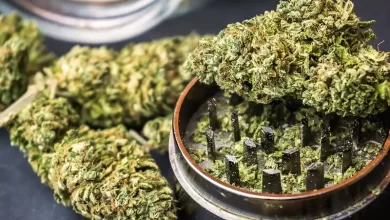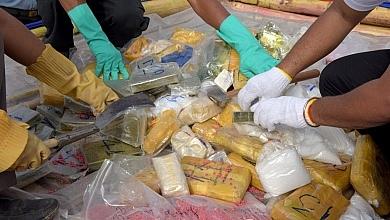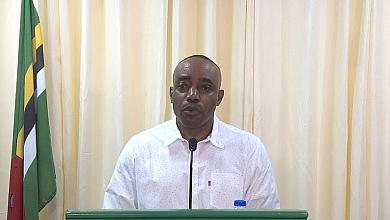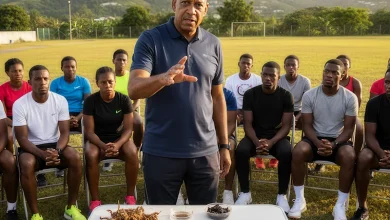The Rasta Was Invited, But Will He Be Included?
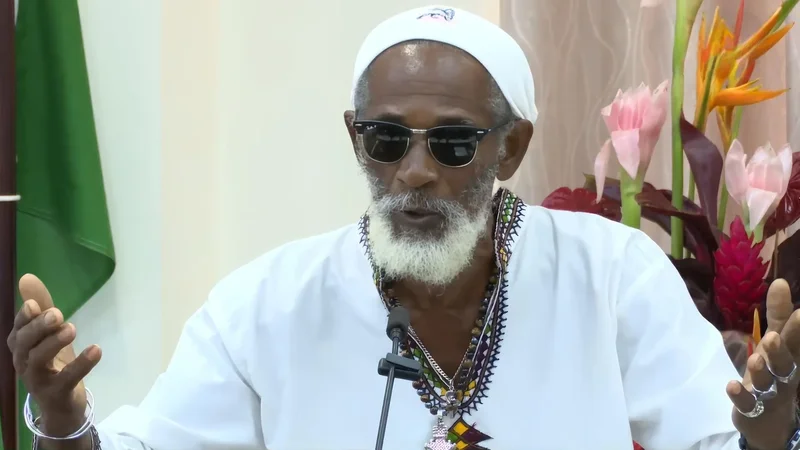
I watched the National Cannabis Symposium with hope, but also with caution. As someone who has seen friends and family suffer for something now being spoken about on a public stage, the day felt strange. There were powerful speeches, big ideas, and even a few moments that stirred the room. But underneath all of it, I kept wondering: what does this mean for the people who carried this plant on their backs when nobody else would?
The room acknowledged the presence of Rastafari. Ministers mentioned the House of Nyabinghi. They said traditional herbalists would be part of the future. There were even blessings given in the name of culture and spirituality. But I didn’t hear any of those elders or practitioners speak. They were mentioned, not included. And that difference matters more than people realize.
The Applause Can’t Erase the Past
It’s easy now to talk about cannabis reform with pride. But for many years, the same men who are now being smiled at were probably dragged through the courts, chased by police, or quietly turned away from jobs. Some of them still live with a criminal record for something that is now being treated as economic policy.
Minister for Health Hon. Cassanni Laville, to his credit, said the right things. He said, “We will ensure that our traditional herbalists, including those from the House of Nyabinghi, are not left behind.”
He spoke about inclusion and justice. He warned against leaving out the “small man and woman.” But none of that is yet written into any law. And in this country, we know the difference between talk and follow-through. Good intentions don’t always survive the committee room.
They Always Say “Justice”, But Who Gets It?
Dr. Kenneth Darroux said, “This is about safe use, science-based policy, and equitable growth.”
And Dr. Al-Mario Casimir added, “Our goal is to ensure that this industry reflects our values, justice, sustainability, and local empowerment.”
Those are beautiful words. But if the people being talked about aren’t in the room, then who are we really empowering?
When I was younger, I remember a time when simply wearing dreadlocks could get you profiled. I had cousins who were harassed just for carrying a little bush to help someone’s back pain. Those herbalists didn’t wait for government regulation. They trusted in what the old people taught them. But now, when things are being formalized, they’re not the ones helping draft the rules. That doesn’t feel like justice. It feels like delay.
A Moment That Meant Something
The one moment that hit me emotionally was when Melissa Skerrit shared her story about a young woman with breast cancer. She said, “Cannabis oil may not be a cure for cancer, but it plays a powerful role in managing pain…”
It felt real. I could picture the woman she was speaking about. I know people like that, family members who’ve suffered silently because they were afraid to even ask for herbal alternatives. For the first time that day, I felt someone was speaking from a place of experience, not just policy.
But again, I found myself asking, how do people access that oil safely now? Who is producing it? Who’s protecting the herbalist who prepares it? Who’s training the next generation of people with that knowledge?
Are We Too Late?
Dr. Marshall Emmanuel said something that stuck with me, “Don’t just talk about inclusion. Build it into the bylaws, the funding mechanisms, and the export protocols.”
That’s what’s missing. We talk a lot about inclusion, but we don’t put it in writing. If there’s a board making decisions, where is the herbalist’s seat? If funding is being distributed, where is the line item for those who never had a formal business? If we’re talking about exports, are we only thinking about international buyers, or the village healer who has served her people for years?
This is not just about economics. It’s about trust. And right now, many people don’t feel that trust.
It’s not hard to imagine where this could go. Bay Oil from Dominica used to be our pride. So was Dominican Coffee. People worked hard to build those industries, but when the big money came in, the original farmers were often left out. We are now seeing some growth in Seamoss Farming in Dominica, but even there, I hear worries from small producers about being pushed aside.
If this cannabis industry follows the same path, it will not only be another missed opportunity. It will be another wound on communities that have already lost too much.
The Guest Who Said the Quiet Part Out Loud
Samal Duggins, the Minister from St. Kitts, said, “We are not only legalizing a plant. We are decriminalizing culture and opportunity.”
That was probably the clearest statement of the day. Because cannabis in Dominica has always been more than a plant. For many, it is medicine. For others, it is sacrament. For the state, it was criminal evidence. And now suddenly, it’s policy.
But you can’t just erase the past by holding a symposium. Real healing needs more than speeches. It needs action.
We’re at a crossroad. The Cannabis Industry in Dominica is still being shaped. The National Marijuana Advisory Committee has been formed. The ministers are consulting. And from what I saw, there is genuine desire to do this right.
Belief won’t carry this forward. We need protection in law, concrete deadlines, signed agreements, and proof of authority. Rastafari and herbalist practitioners deserve more than name-drops; they deserve real roles in decision-making. After years of dedication through silence and stigma, they shouldn’t be seeking access. That access should already be built into the process.
This article is copyright © 2025 DOM767





